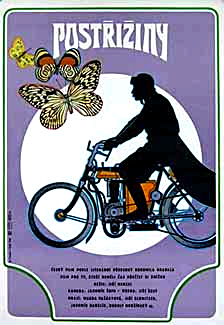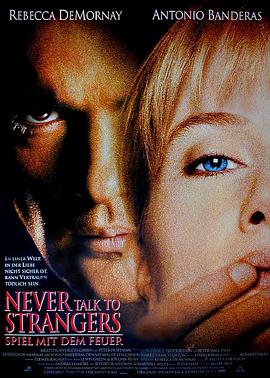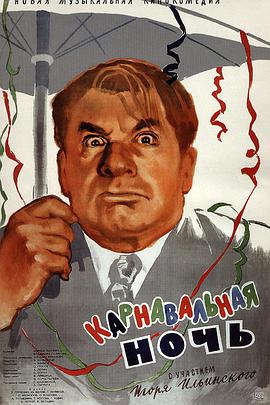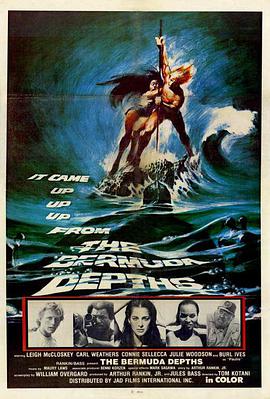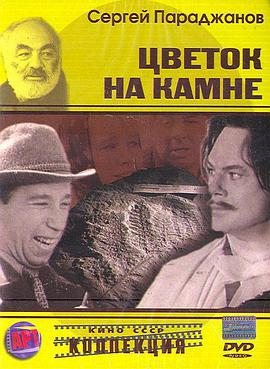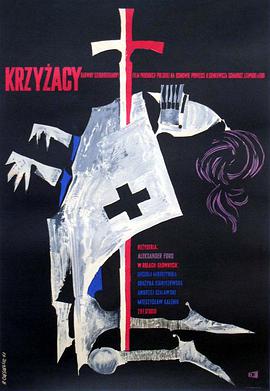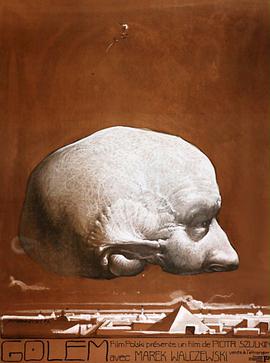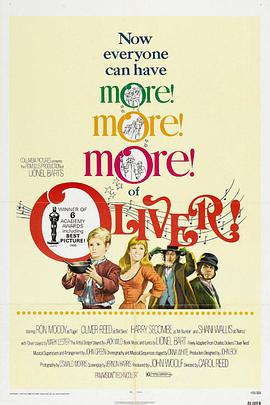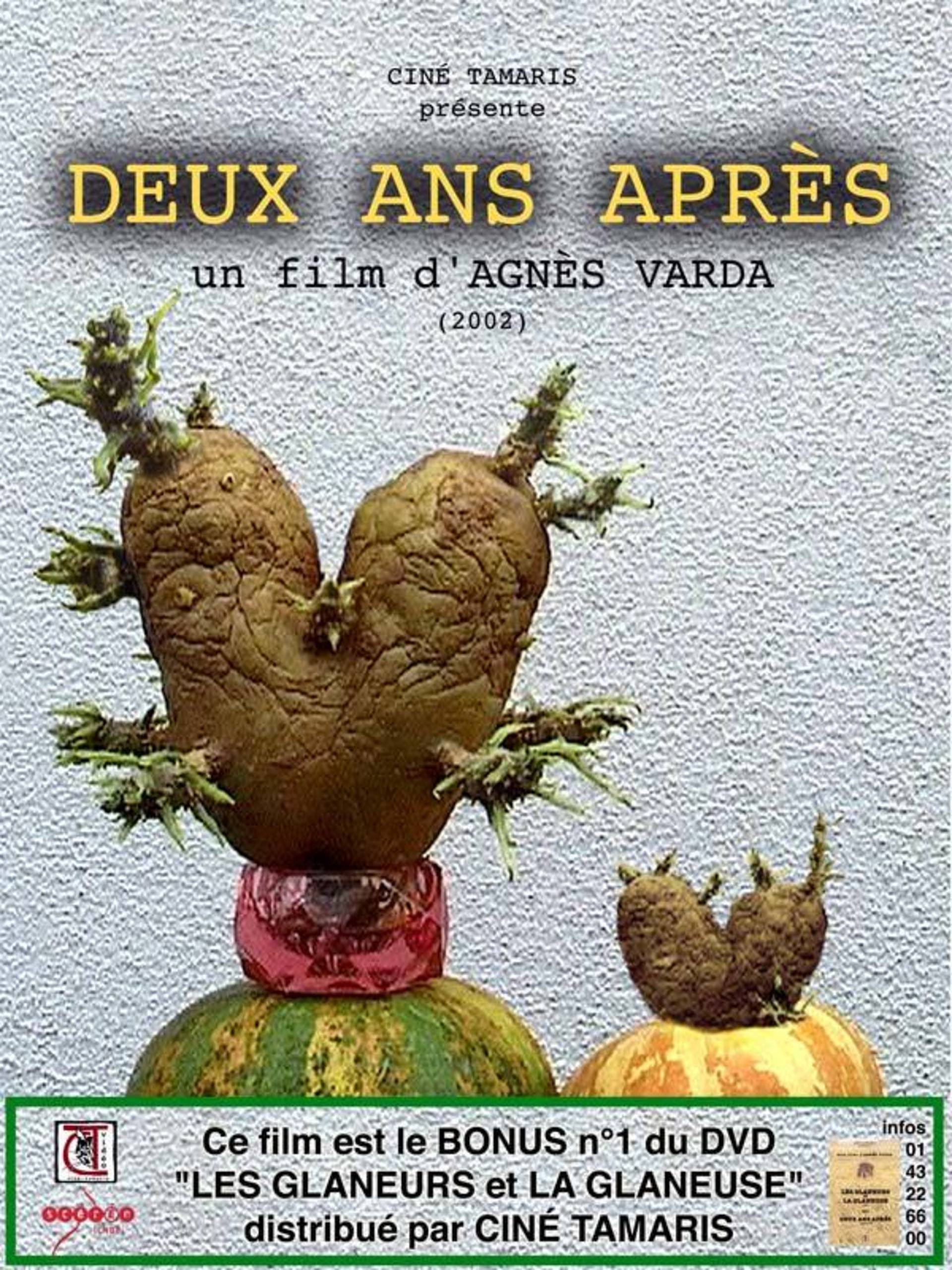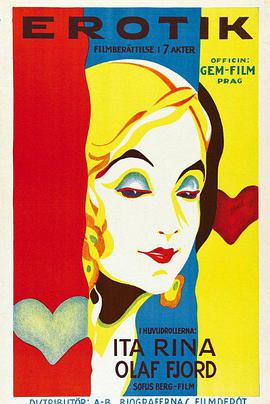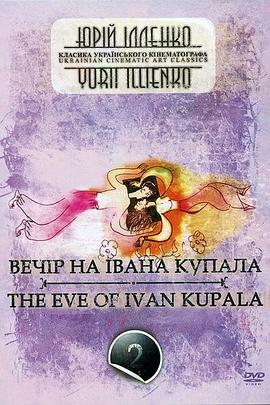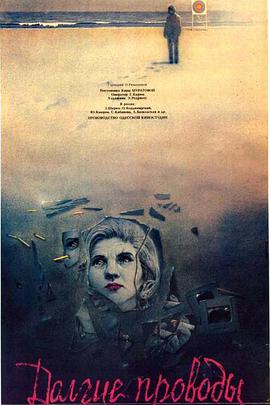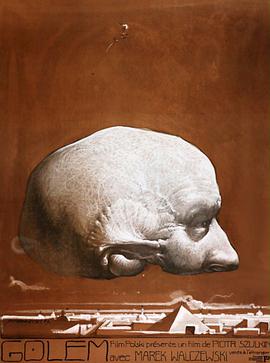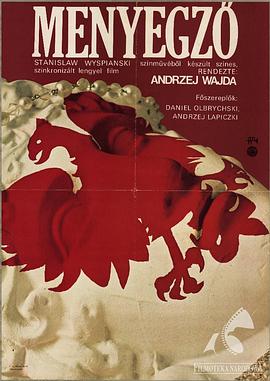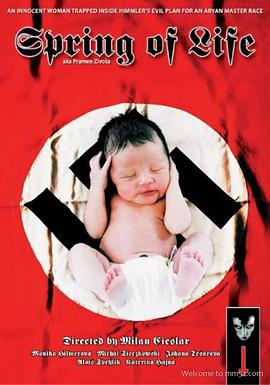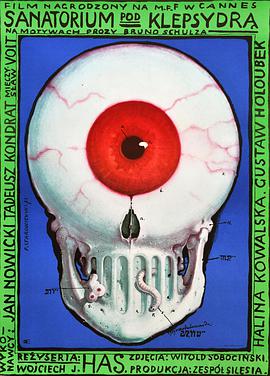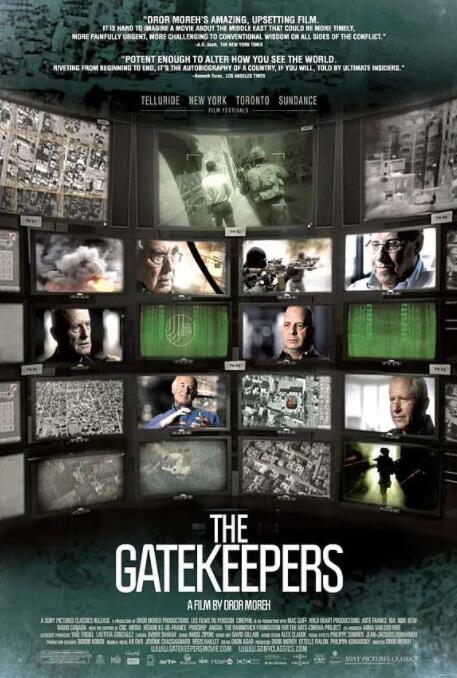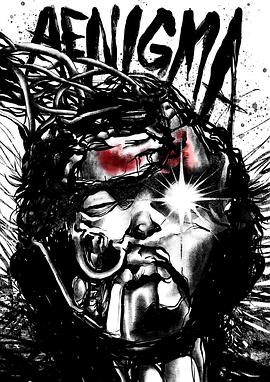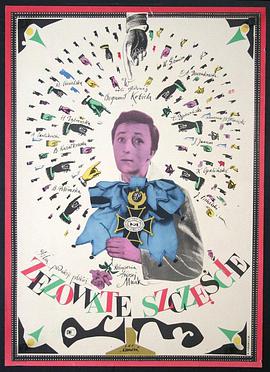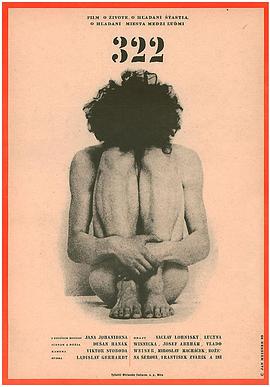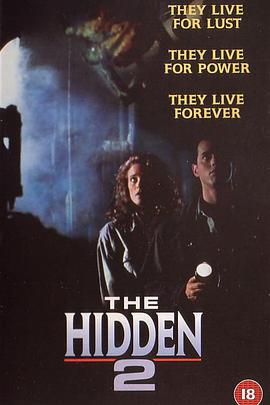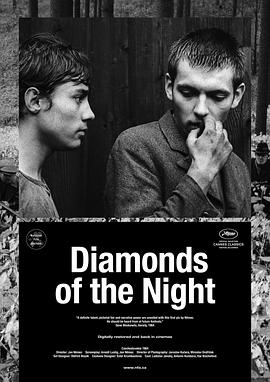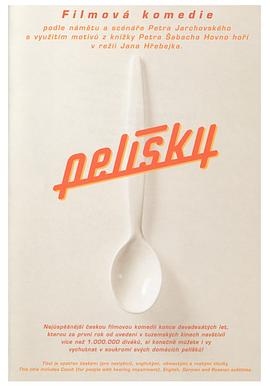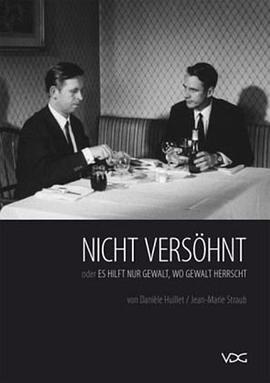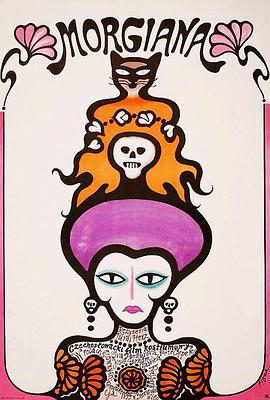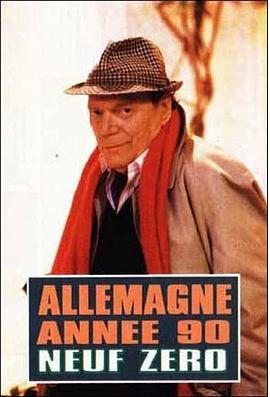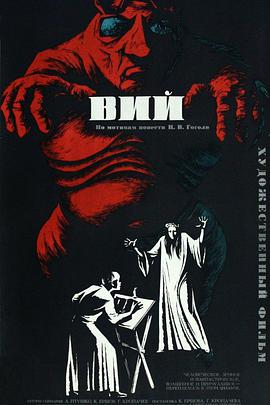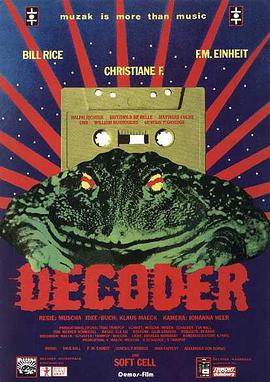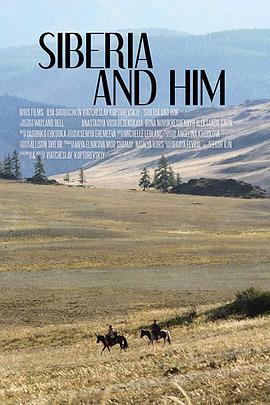SK
搜索"SK" ,找到 1422部影视作品
导演:
/
伊日·门泽尔
剧情:
这部作品最特别四虎影视最新的2021版地址的在于整个故事是以赫拉巴尔的童年经历为蓝本,他小时候家里有座自营的啤酒厂,母亲迷人大方,父亲勤劳内向,平和的家庭却因为叔叔宛如不速之客的介入,而起了波澜 ...... 一部充满诗意、想像、幽默与捷克啤酒金黄魅力的杰出喜色桥人体艺术剧。 伊利曼佐一向被公认为是最擅长改编捷 克文豪拉拔尔作品的导演,包括【严密监视的列车】、【失翼灵雀】等,两人unusual安室奈美惠一共合作了五部作品。拉拔尔擅以幽默俚俗的语调来呈现人民的性格,融政治历史**讽喻于其中。
导演:
/
彼得·豪尔
剧情:
&花季v3 0 2黄在线观看lt;p> 莎拉(瑞贝卡·德·莫妮 Rebecca De Mornay 饰)是一名研究犯罪学的心理学家,工作中,她见识过各种各样冷酷残暴的变态凶手,无数个鲜血淋漓诡异可怖的犯罪现场,没有任何罪犯留下的蛛丝马迹能够逃脱她的眼睛,没有任何威胁和危险能够让她屈服。 一次偶然中,莎拉邂逅了名为托尼我尝一下可以吗全文(安东尼奥·班德拉斯 Antonio Banderas 饰)的男子。风度翩翩温文尔雅的托尼很快就吸引了莎拉的注意,没过多久,两人便坠入了爱河。然而,也就是从这时候起,莎拉的身边开始接二连三的发生离奇的怪事,一股强烈的恶意正在迅速接近着莎拉,而莎拉的直觉告诉她,这一切,都和托尼有着千丝万缕的关联。
导演:
/
埃利达尔·梁赞诺夫
剧情:
新年将至,文化宫正在筹备一场盛大的跨年晚宴。奥古尔(伊戈尔·伊林斯基 Igor Ilyinsky 饰)是文化宫叛逆者分集剧情介绍新上任的主任,这个严肃的男人决定将晚宴上要表演的所有节目都重新审核一遍,并且在跨年当天发表一份长达40分钟的学术演讲。 晚宴上的一切都让奥古尔感到非常的不爽——女演员们的裙子太给个网站你们懂的短、乐队演奏的歌曲太过于花哨和肤浅、参会者竟然想带起花里胡哨的狂欢节面具来遮掩他们的容貌。奥古尔雷厉风行的对整改晚会节目下达了指令,年轻人们当然不会叶未晞严辰夜小说免费阅读就这样受人摆布,他们决定见招拆招,和奥古尔暗中较劲。
导演:
/
Tom Kotani
主演:
剧情:
美国片深海巨灵大海龟,讲的是一个在海边长大的小男孩很孤独,常在海边玩,有一次一个小女孩从海里跑了出来,于是他们成了朋友一起玩,他们拣到一个海龟,共同在海龟背上刻了一个图案.天恶棍天使百度云色晚了,小女孩送给他一串项链,又回到海里去了.10年后,男孩长大了,有人发现海里有史前巨型生物,于是一队科学家去考察,原来是一只巨型海龟,很多人都想捉它,有的为科学,有的为发财,那个年青人出于好奇也加入了.但那个海龟真是大的吓人,和足球场一般大小,鲨鱼也才他的脑袋一样长,海龟虽然可怕,但对人并没什么威胁.很多人试图用各种办法来抓它都失败了就剩下一个黑人还不放弃.这时一个神秘女子出现了,她找到那个年轻人,劝他不要去抓海龟,年轻人认出了她正是小时候一起在海边的玩天天影视网色伴,正有很多问题想问她时,那个黑人喊他准备出发,等他回过头来,女子已经消失不见了
导演:
/
谢尔盖·帕拉杰诺夫
主演:
剧情:
A狗狗甘女主人BB coal mine in the Donbas region is infiltrated by a haywire cult that invites members to sacrifice a finger to the "sacred ax&quo东方卫视cc直播t;--but two rugged miners fight back when a sw王宝强拍的电视剧eet village girl falls into the fold.
导演:
/
亚历山大·福特
主演:
剧情:
影片表现西欧running man20161225封建主为了掠夺和侵略土地而发动十字军远征,企图打着宗教的旗帜残害波兰人民和波兰骑士。该片场面宏伟,出演演员甚多,动用了大量的人力和财力。导老子影院在线理论片演的手法大刀阔斧,表现了很高的艺术性。影片主要反映十字军在波兰惨绝人寰的种种暴行。影片主题鲜明,富有爱国主义精神,是战后波兰观众人数最多的一部影片。
导演:
/
皮奥特尔·舒尔金
主演:
剧情:
In this futuristic sci-fi film, spa馆加盟based on the legends of the Golem, insane scientists have invented technology that give them total control over the half-human, half-android population of Earth. Trouble ensues when one of the creatures begins showing independent will. He must be destroyed lest he influence the rest. They pursue him, but somehow he continues to elude the evil doctors. ~ Sandra Brennan, All Movie Guide
导演:
/
卡罗尔·里德
剧情:
奥利弗(马克·莱斯特 Mark Lester 饰)是一名孤儿,从小在教会中长大。九岁时,奥利弗被派遣到工厂做工,之后又来到殡仪蜜芽781 coon馆成为了学徒。奥利弗的聪慧和机敏让他很快就在殡仪馆里站稳了脚跟,但与此同时,他亦遭到了同伴们的妒忌,他们故意挑衅激怒奥利弗,最终奥利弗离开了殡仪馆。 无家可归的奥利弗过起了四处流浪的生活,经过漫长的旅途,他来到了伦敦。一个名叫道奇(杰克·瓦尔德 Jack Wild 饰)的扒手将奥利弗带到了匪首费金(朗·穆迪 Ron Moody 饰)的面前,就这样,奥利弗成为了他们中的一员。一次意外中,奥利弗找到你剧情被警察逮捕了,但随后,他被证实是无辜的,当事人布朗罗先生(Joseph O'Conor 饰)对奥利弗感到十分愧疚,于是收留了他,奥利弗的生活能够从此走上正轨吗?
导演:
/
琪拉·穆拉托娃
主演:
剧情:
It is a great film by a great director.Kira Muratova has never been given her due in the Soviet and post-Soviet Russia.In the "Long Good Bye" she depicts a seemingly banal story of a jealous and possessive mother (brilliantly acted by Zinaida Sharko) and her poor aloof and lonely son (the only cinematic role by the talented O. Vladimirsky). The story - which is nothing extraordinary in itself - grows into the wonderful and frightening analysis of alienation between genders and generations on the background of the even more f私密按摩师视频无删减在线righteningly bleak and dehumanized Soviet reality.Kira Muratova shows the tiny details of everyday Soviet life,and, again , banal as they are ,they are a hair-raising horror.The dialogue is deliberately laconic and void of any sense, showing the ever-growing people's inability to communicate and understand each other.The sound track ( by another under-estimated talent, Oleg Karavaichuk)adds to the atmosphere of hopeless and meaningless existence.Of course,Sasha (the name of the protagonist),will leave his despotic ( but loving!) mother sooner or later, but where for? (c) Author: drbagrov from Taiwan
导演:
/
皮奥特尔·舒尔金
主演:
剧情:
In this futuristic sci-fi film, based on the leg英国的巨人dannyd的视频ends of the Golem, insane scientists have invented technology that give them total control over the half-human, half-android population of Earth. Trouble ensues when one of the creatures begins show1视频直播房间ing independent will. He must be destroyed lest he influence穿成浪荡女配NP the rest. They pursue him, but somehow he continues to elude the evil doctors. ~ Sandra Brennan, All Movie Guide
导演:
/
安杰伊·瓦伊达
主演:
剧情:
Set at the turn of the century, the story concerns a Polish poet living in Cracow who has decided to marry a peasant girl. The wedding is attended by a heterogenous group of people from all strata of Polish society, who dance, get drunk and lament Poland's 100-year-long division of Poland under Russia国语在线, Prussia, and Austria. The bridegroom, a painter friend, and a journalist each in turn is confronted with spectres of Polish past. In the end a call to arms is called but turns out to be a hoax.
导演:
/
德罗尔·莫雷赫
主演:
剧情:
以色列秘密安全组织“辛贝特”(ShinBet)的6位前领导人讲述了该国1967年之后的历史,包括那些公开的和不为人知的历史。如果你认为你理解中东,那么你必须看看这部纪录片,它会让你大开眼界。辛贝特是以色列的国家安全机构,主要负责保卫国内首脑和外国来访政客的人身安全。他们的座右铭是“看不见的盾”,在任何时候他们的成员姓名都是保密的,只有领导人的名字会被披露出来。辛贝特是一个很成功的组织,有些人对他们颇有微词,包括他们刑讯逼供的不择手段,再有就是1995年他们没能阻止对当时总统拉宾的暗杀。在以色列历史上,曾有过十三任的首领。而在过去三十年里,只有六个人有资格统领这个机构。此前,他们从未接受过任何采访,在导演德赫-莫雷赫的镜头前,他们第一次打开拒绝豪门少奶奶99次出逃了话匣。“到底是什么让他们决定道出有关这个组织的秘密和运作方式?”从1980年任职的亚伯拉罕-沙洛姆,到2011年刚刚卸任的尤瓦尔-迪斯金,他们以充满自信和挑衅的口吻谈论了以色列的秘密行动、审讯手段和反恐措施。这些处于机构最高级别的人,深知许多政权内幕,而未来在他们眼中却是一片黯淡……【幕后制作】以色列导演德赫-莫雷赫的灵感来源于2003年的奥斯卡最佳纪录片《战争迷雾》。那时,莫雷赫刚刚制作完关于以色列前总理阿里埃勒·沙龙的电影,他意识到辛贝特在过去的四十年里在政坛扮演了决定性的角色。阿米-阿亚隆是六位辛贝特首领中第一个同意接受采访的。基于这个组织的机密性,他们之前谁都没有这种采访的经验,莫雷赫准备的很多话题不是涉及机密就是太过敏感。尽管有这些困难,莫雷赫还是惊喜于阿亚隆的积极配合态度,他不仅欣然接受访问还帮忙联系其他幸存下来的辛贝特前任领导成员:亚伯拉罕-沙洛姆、亚科夫-佩瑞、迦米-吉隆和阿维-迪西特。而第六位辛贝特首领尤瓦尔-迪斯金在接受采访时还在任期中。虽然这些人都愿意加入影片的拍摄,但在最初有些人不愿意谈论自己经历过的政治事件,比如沙洛姆便不愿意谈起自己在公交车劫持事件和处决恐怖分子中扮演的角色,尤其是随后的丑闻直接导致了他离职。不过,随着时间的推移和莫雷赫的沟通与鼓励,关于这一事件的访谈已经成为了电影重要的一部分。片中主要涵盖的是1967年之后的以色列历史。辛贝特不属于军队机构,而是直接听命于国家总统,它作为以色列体制的一部分而存在,有时候它也是政客犯错误时的公共替罪羊。在1967年之后,辛贝特绝大部分的工作重心都放在约旦河西岸和加沙地带的反恐情报收集。导演和几位辛贝特成员,虽然观点不太相同,但都认为在现今的路径下,以色列很可能收获苦果。而至于巴以冲突,莫雷赫说:“和平是可能的。问题是以色列缺乏领导力,在历史上没有什么领导人愿意和巴勒斯特好好沟通。”
导演:
/
安杰伊·蒙克
主演:
剧情:
让•皮斯吉克(Bogumil Kobiela博古米尔•科别拉 饰)是一个一生走背运的小人物,在家中经常被裁缝老爹修理,在学校里又被同学欺负。长大后英俊帅气,却因为陆家嘴时间大鼻子而被当作犹太人区别对待。做家庭教师时拥有了初恋,结果稀里糊涂卷入一场游行,被军警胖走拉比电讯一顿,随后丢掉了工作和爱情。他又立志参军,千辛万苦赶到报到地点却发现这里已是一座空城,结果又因好奇穿上波兰军官制服而被纳粹投入集中营。在监狱中他假戏真做,扮作高级军官,谎言揭穿后,他又被同伴当作间谍对待。战争终于结束,皮斯吉克重获自由,在新的社会体制下他将如何生存?狗和狼的时间
导演:
/
杜桑·哈那克
主演:
剧情:
Mannheim-Heidelberg International Filmfestival YearResultAwardCategory/Recipient(s) 1969 Won Grand Prize Dusan Hanák A government official in Czechoslovakia mistakenly believes he has我亲爱的小冤家国语版全集 cancer. He reasons his involvement in clandestine activities during the Stalin administration have fated him to die from a dreaded disease. He searches for inner peace as he feels the guilt of his past transgressions. This film tied for the Grand Prize at the Mannheim Film Festival in 1969.&某某盛望江添肉车扩写lt;br/> Slovak director Dusan Hanak was one of Czech cinema's brightest and best talents of the '60s and '70s, but because of censorship this was not manifest until the late '80s. Dusan made an impact on the film world with his auspicious debut 322 (1969). Though banned until 1988, when it was finally released, it earned international acclaim and the Grand Prix award at the Mannheim Film Festival. Hanak's sophomore effort, the documentary Obrazy Stareho Sveta/Image of an Old World (completed in 1972), was also not released until 1988 and neither was his 1980 film Ja Milujem, Ty Milujes/I Love You, You Love. Only Hanak's 1976 film Ruzove Sny/Ros奇异博士吧百度云资源e-Tinted Dreams passed muster with censors and saw a timely release.
导演:
/
斯坦尼斯拉夫·罗泽维格
主演:
剧情:
In 1961, Stanislaw Rozewicz created the novella film "Birth Certificate" in cooperation with his brother, Taduesz Rozewicz as screenwriter. Such brother tandems are rare in the history of film but aside from family ties, Stanislaw (born in 1924) and Taduesz (born in 1921) were mutually bound by their love for the cinema. They were born and grew up in Radomsk, a small town which had "its madmen and its saints" and most importanly, the "Kinema" cinema, as Stanislaw recalls: for him cinema is "heaven, the whole world, enchantment". Tadeusz says he considers cinema both a charming market stall and a mysterious temple. "All this savage land has always attracted and fascinated me," he says. "I am devoured by cinema and I devour cinema; I'm a cinema eater." But Taduesz Rozewicz, an eminent writer, admits this unique form of cooperation was a problem to him: "It is the presence of the other person not only in the process of writing, but at its very core, which is inserperable for me from absolute solitude." Some scenes the brothers wrote together; others were created by the writer himself, following discussions with the director. But from the perspective of time, it is "Birth Certificate", rather than "Echo" or "The Wicked Gate", that Taduesz describes as his most intimate film. This is understandable. The tradgey from September 1939 in Poland was for the Rozewicz brothers their personal "birth certificate". When working on the film, the director said "This time it is all about shaking off, getting rid of the psychological burden which the war was for all of us. ... Cooperation with my brother was in this case easier, as we share many war memories. We wanted to show to adult viewers a picture of war as seen by a child. ... In reality, it is the adults who created the real world of massacres. Children beheld the horrors coming back to life, exhumed from underneath the ground, overwhelming the earth." The principle of composition of "Birth Certificate" is not obvious. When watching a novella film, we tend to think in terms of traditional theatre. We expect that a miniature story will finish with a sharp point; the three film novellas in Rozewicz's work lack this feature. We do not know what will be happen to the boy making his alone through the forest towards the end of "On the Road". We do not know whether in "Letter from the Camp", the help offered by the small heroes to a Soviet prisoner will rescue him from the unknown fate of his compatriots. The fate of the Jewish girl from "Drop of Blood" is also unclear. Will she keep her new impersonation as "Mary爱神之手sia Malinowska"? Or will the Nazis make her into a representative of the "Nordic race"? Those questions were asked by the director for a reason. He preceived war as chaos and perdition, and not as linear history that could be reflected in a plot. Although "Birth Certificate" is saturated with moral content, it does not aim to be a morality play. But with the immense pressure of reality, no varient of fate should be excluded. This approached can be compared wth Krzysztof Kieslowski's "Blind Chance" 25 years later, which pictured dramatic choices of a different era. The film novella "On the Road" has a very sparing plot, but it drew special attention of the reviewers. The ominating overtone of the war films created by the Polish Film School at that time should be kept in mind. Mainly owing to Wajda, those films dealt with romantic heritage. They were permeated with pathos, bitterness, and irony. Rozewicz is an extraordinary artist. When narrating a story about a boy lost in a war zone, carrying some documents from the regiment office as if they were a treasure, the narrator in "On the Road" discovers rough prose where one should find poetry. And suddenly, the irrational touches this rather tame world. The boy, who until that moment resembled a Polish version of the Good Soldier Schweik, sets off, like Don Quixote, for his first and last battle. A critic described it as "an absurd gesture and someone else could surely use it to criticise the Polish style of dying. ... But the Rozewicz brothers do no accuse: they only compose an elegy for the picturesque peasant-soldier, probably the most important veteran of the Polish war of 1939-1945." "Birth Certificate" is not a lofty statement about national imponderabilia. The film reveals a plebeian perspective which Aleksander Jackieqicz once contrasted with those "lyrical lamentations" inherent in the Kordian tradition. However, a historical overview of Rozewicz's work shows that the distinctive style does not signify a fundamental difference in illustrating the Polish September. Just as the memorable scene from Wajda's "Lotna" was in fact an expression of desperation and distress, the same emotions permeate the final scene of "Birth Certificate". These are not ideological concepts, though once described as such and fervently debated, but rather psychological creations. In this specific case, observes Witold Zalewski, it is not about manifesting knightly pride, but about a gesture of a simple man who does not agree to be enslaved. The novella "Drop of Blood" is, with Aleksander Ford's "Border Street", one of the first narrations of the fate of the Polish Jews during the Nazi occupation. The story about a girl literally looking for her place on earth has a dramatic dimension. Especially in the age of today's journalistic disputes, often manipulative, lacking in empathy and imbued with bad will, Rozewicz's story from the past shocks with its authenticity. The small herione of the story is the only one who survives a German raid on her family home. Physical survial does not, however, mean a return to normality. Her frightened departure from the rubbish dump that was her hideout lead her to a ruined apartment. Her walk around it is painful because still fresh signs of life are mixed with evidence of annihilation. Help is needed, but Mirka does not know anyone in the outside world. Her subsequent attempts express the state of the fugitive's spirits - from hope and faith, moving to doubt, a sense of oppression, and thickening fear, and finally to despair. At the same time, the Jewish girl's search for refuge resembles the state of Polish society. The appearance of Mirka results in confusion, and later, trouble. This was already signalled by Rozewicz in an exceptional scene from "Letter from the Camp" in which the boy's neighbour, seeing a fugitive Russian soldier, retreats immediately, admitting that "Now, people worry only about themselves." Such embarassing excuses mask fear. During the occupation, no one feels safe. Neither social status not the aegis of a charity organisation protects against repression. We see the potential guardians of Mirka passing her back and forth a乔染厉谨言小说mong themselves. These are friendly hands but they cannot offer strong support. The story takes place on that thin line between solidarity and heroism. Solidarity arises spontaneously, but only some are capable of heroism. Help for the girl does not always result from compassion; sometimes it is based on past relations and personal ties (a neighbour of the doctor takes in the fugitive for a few days because of past friendship). Rozewicz portrays all of this in a subtle way; even the smallest gesture has significance. Take, for example, the conversation with a stranger on the train: short, as if jotted down on the margin, but so full of tension. And earlier, a peculiar examination of Polishness: the "Holy Father" prayer forced on Mirka by the village boys to check that she is not a Jew. Would not rising to the challenge mean a death sentance? Viewed after many years, "Birth Certificate" discloses yet another quality that is not present in the works of the Polish School, but is prominent in later B-class war films. This is the picture of everyday life during the war and occupation outlined in the three novellas. It harmonises with the logic of speaking about "life after life". Small heroes of Rozewicz suddenly enter the reality of war, with no experie小说山楂树之恋nce or scale with which to compare it. For them, the present is a natural extension of and at the same time a complete negation of the past. Consider the sleey small-town marketplace, through which armoured columns will shortly pass. Or meet the German motorcyclists, who look like aliens from outer space - a picture taken from an autopsy because this is how Stanislaw and Taduesz perceived the first Germans they ever met. Note the blurred silhouettes of people against a white wall who are being shot - at first they are shocking, but soon they will probably become a part of the grim landscape. In the city centre stands a prisoner camp on a sodden bog ("People perish likes flies; the bodies are transported during the night"); in the street the childern are running after a coal wagon to collect some precious pieces of fuel. There's a bustle around some food (a boy reproaches his younger brother's actions by singing: "The warrant officer's son is begging in front of the church? I'm going to tell mother!"); and the kitchen, which one evening becomes the proscenium of a real drama. And there are the symbols: a bar of chocolate forced upon a boy by a Wehrmacht soldier ("On the Road"); a pair of shoes belonging to Zbyszek's father which the boy spontaneously gives to a Russian fugitive; a priceless slice of bread, ground under the heel of a policeman in the guter ("Letters from the Camp"). As the director put it: "In every film, I communicate my own vision of the world and of the people. Only then the style follows, the defined way of experiencing things." In Birth Certificate, he adds, his approach was driven by the subject: "I attempted to create not only the texture of the document but also to add some poetic element. I know it is risky but as for the merger of documentation and poety, often hidden very deep, if only it manages to make its way onto the screen, it results in what can referred to as 'art'." After 1945, there were numerous films created in Europe that dealt with war and children, including "Somewhere in Europe" ("Valahol Europaban", 1947 by Geza Radvanyi), "Shoeshine" ("Sciescia", 1946 by Vittorio de Sica), and "Childhood of Ivan" ("Iwanowo dietstwo" by Andriej Tarkowski). Yet there were fewer than one would expect. Pursuing a subject so imbued with sentimentalism requires stylistic disipline and a special ability to manage child actors. The author of "Birth Certificate" mastered both - and it was not by chance. Stanislaw Rozewicz was always the beneficent spirit of the film milieu; he could unite people around a common goal. He emanated peace and sensitivity, which flowed to his co-workers and pupils. A film, being a group work, necessitates some form of empathy - tuning in with others. In a biographical documentary about Stanislaw Rozewicz entitled "Walking, Meeting" (1999 by Antoni Krauze), there is a beautiful scene when the director, after a few decades, meets Beata Barszczewska, who plays Mireczka in the novella "Drops of Blood". The woman falls into the arms of the elderly man. They are both moved. He wonders how many years have passed. She answers: "A few years. Not too many." And Rozewicz, with his characteristic smile says: "It is true. We spent this entire time together."
导演:
/
扬·霍布雷克
主演:
剧情:
故事发生在桃花族论坛首页1967年的布拉格,圣诞节即将来临,家家户户都沉浸在节日的喜悦气氛之中。16岁的少年米修(迈克尔·贝兰 Michael Beran 饰)暗恋着邻居家的女孩金德诺(克里斯蒂娜·科胡托娃 Kristýna Nováková 饰),无奈落花有意流水无情,而两家人之间的关系也并不亲密,米修小小年纪就欧美一对一外教饱尝了求而不得的痛苦滋味。 之后,金德诺的母亲去世了,而她的父亲居然爱上了米修的阿姨,因为这段姻缘,两家人重修旧好,米修终于找到了机会向金德诺倾诉了他深藏已久的爱意,但金德诺对于这段感情似乎十分怯懦。金德诺即将跟随父亲前往伦敦游玩,面对离别,米修能够坚持自己小小的爱恋吗?
导演:
/
让-马里·斯特劳布,达尼埃尔·于伊耶
主演:
剧情:
The subtitle of Jean-Marie Straub and Danièle Huillet’s first feature, from 1965, “Only Violence Helps Where Violence Reigns,” suggests the fierce political program evoked by their rigorous aesthet关婷娜泳装ic. The pretext of the film, set in Cologne, is Heinrich Böll’s novel “Billiards at Half Past Nine,” which they strip down to a handful of stark events and film with a confrontational angularity akin to Bartók’s music that adorns the soundtrack. The subtlest of cues accompany the story’s complex flashba三上悠亚在线观看cks. The middle-aged Robert Fähmel tells a young hotel bellhop of persecutions under the Third Reich; his elderly father, Heinrich, an architect famed for a local abbey, recalls the militarism of the First World War, when his wife, Johanna, incurred trouble for insulting the Kaiser. A third-generation Fähmel is considering architecture, just as the exiled brother of Robert’s late wife, returns, only to be met by their former torturer, now a West German official taking part in a celebratory parade of war veterans. Straub and Huillet make th绿巨人app污下载入口e layers of history live in the present tense, which they judge severely. The tamped-down acting and the spare, tense visual rhetoric suggest a state of moral crisis as well as the response—as much in style as in substance—that it demands.
导演:
/
让-吕克·戈达尔
剧情:
Characterized by deconstructivism and philosophical references and by bri漂漂亮艺术馆efly exposing the go不要了好深戳到肚子了od, bad, and ugly periods of the country's history, this post-modern film portrays the abstract need for guidance of Germany 七月与安生 迅雷下载following the fall of the Berlin Wall.
导演:
/
康斯坦丁·叶尔绍夫,格奥尔基·克罗帕乔夫
主演:
剧情:
The movie follows the original tale in a somewhat loose fashion, but manages to retain the majority of the images and action. A seminary student must survive three nights in prayer guarding the deceased witch maiden while she, along with an army of佛歌大悲咒下载 hellish demons, try to lure him out of his Holy Ring of Chalk.
导演:
/
Viatcheslav Kopturevskiy
主演:
剧情:
Meek farmhand Sasha and policeman Dima have a fraught relationship. They’re brothers-in-law, travel companions, and—secretly—lovers. Over the course of their journey to visit Sasha’s grandmothe我的好妈妈4在线观看中文版r, unspoken truths are uttered, intimacy is built, and authenticity is challenged. Although they may be far from the peering eyes of their oppressive society, their relationship teeters on a dangerous precipice. Selected and supported by the IFP Filmmaker Lab and destined to evoke both the breathtaking landscapes of BROKEBACK MOUNTAIN and the tragedy of a Dostoevsky novel, Viatcheslav Kopturevskiy’s auspicious deb奇怪的美发沙龙发在线看ut drama is an elliptical and much-needed examination of internalized homophobia, repression, and identity in a remote Siberian town.

